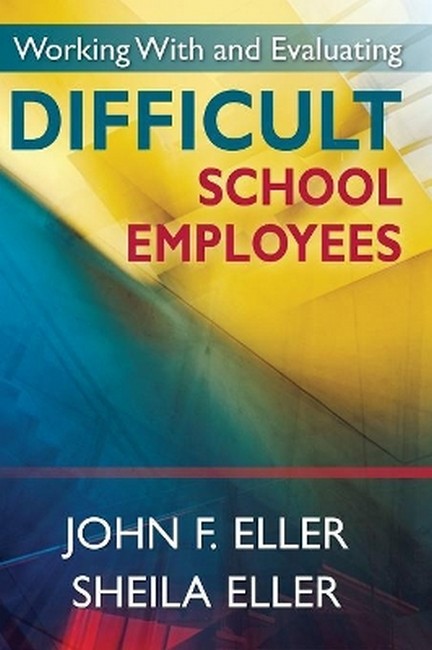John Eller has had a variety of experiences in working with adults over the years he has been in education. His experiences include work educational leaders at Virginia Tech University, developing teacher leaders in a Maters program, serving as the Executive Director of Minnesota ASCD, work as a principal's training center director, a position as an assistant superintendent for curriculum, learning, and staff development, and several principal positions in a variety of settings. In addition to the work he does in training and supporting facilitators, John also does work in the areas of dealing with difficult people, building professional learning communities, employee evaluation, conferencing skills, coaching skills, strategic planning strategies, school improvement planning and implementation, differentiated instruction, leadership for differentiation, employee recruitment, selection, and induction, supervisory skills, and effective teaching strategies. He has his PhD. in Educational Leadership and Policy Studies from Loyola University-Chicago and his MS in Educational Leadership from the University of Nebraska-Omaha. John has authored books on substitute teaching, wrote The Training Video Series for the Professional School Bus Driver, The principals' Guide to Custodial Supervision contributes articles for the publication Superintendents Only. He wrote Effective Group Facilitation in Education: How to Energize Meetings and Manage Difficult Groups, and co-authored So Now You're the Superintendent, the best selling, Energizing Staff Meetings and Creative Strategies to Improve School Culture all through Corwin Press. Sheila Eller has worked in a multitude of educational settings during her career. In addition to her current position as a principal in the Fairfax County Virginia Public Schools, she has served as a middle school principal in the Moundsview Minnesota School District, as a principal in other schools in Minnesota and Illinois, as a university professor, as a Special Education Teacher, a Title I Math Teacher, and a self-contained classroom teacher in grades 1-4. Sheila has also been a member of the Executive Board of Minnesota ASCD and has been a regional president of the Minnesota Association of Elementary School Principals. She has advanced coursework in educational administration and supervision from St. Cloud State University, her Master's Degree from Creighton University in Omaha, Nebraska, and a Bachelors Degree from Iowa State University. Sheila is a regular presenter at the ASCD National Conventions sharing her expertise on the topic of effective staff meetings and multiage instruction. While she served as a professor at National-Louis University in Evanston Illinois, she worked on the development team for a classroom mathematics series that was adopted by several districts in the region. Her classroom and instructional techniques were featured on a video that was produced as a complement to this series. She works with educators in developing energized staff meetings, school improvement initiatives, multiage teaching strategies, employee supervision, and other teaching and learning content areas. In addition to this book, Sheila co-authored the best-selling Energizing Staff Meetings and Creative Strategies to Improve School Climate. through Corwin Press.
Request Academic Copy
Please copy the ISBN for submitting review copy form
Description
Preface About the Authors 1. The Nature of Difficult/Marginal Employees: Why Don't These People Listen to Reason and Improve? Frames of Reference Characteristics of Difficult Employees The Response to Change Understanding the Source of the Difficulty Summary 2. What Skills and Tools Do I Need in Order to Take On This Situation? Background of Employee Discipline A Competencies-Based Approach to Thinking About Employee Problems The Definition of Success When Working With Difficult or Deficient Employees Your Readiness in Dealing With a Difficult Situation or Person The Use of Job Descriptions in Your Work With Difficult School Employees Summary 3. Strategies for Confronting Marginal and Deficient Behaviors Framing Authority Voice Summary 4. Protecting Yourself While Dealing With Difficult Employees Presuppositions Reflecting Displacing Negative Energy Additional Self-Protection Strategies Summary 5. Strategies for Working With Difficult/Marginal Teachers The Law and Teacher Employment Your Master Contract or Master Agreement Understanding Your Evaluation Criteria The Ability to Describe Deficient or Substandard Work Base and Surface Competancies Deciding Whether to Move Forward to Terminate Employment or Develop a Growth Plan Growth Plans Delivering a Deficiency Notice or Termination Message to a Teacher The Entire Cycle Summary 6. Strategies for Working with Difficult/Marginal Secretaries and Office Handling Your Administrative Assistants A Basic Set of Administrative Assistant/Office Employee Tasks Base and Surface Competancies Prioritizing Work Tasks Planning Sessions to Establish Priorities for the Work Completion Growth Plans Delivering a Deficiency Notice or Termination Message to an Administrative Assistant Summary 7. Strategies for Working with Difficult/Marginal Paraprofessionals and Teaching Assistants The Nature of Teaching Assistants and Paraprofessionals Base and Surface Competancies Growth Plans Delivering a Performance Concern or Termination Message to a Paraprofessional or Teaching Assistant An Example of a Meeting and Letter of Reprimand for a Paraprofessional Summary 8. Strategies for Working with Difficult/Marginal Custodians Possible Difficult Custodial Behaviors Effective Delegation of Tasks and Assignments Base and Surface Competancies Growth Plans Delivering a Performance or Skill Deficit Concern to a Custodial Employee Summary References Index
"The Ellers have done an excellent job identifying supervision problems that plague administrators on a daily basis. They provide clear and detailed strategies to address personnel problems covering virtually every employment group. I strongly recommend this book as a quick reference for all school administrators as they deal with difficult employees." -- Dan Hoverman, Superintendent

